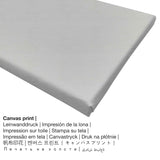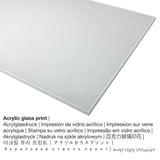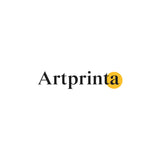Henri Rousseau, 1908 - The Banks of the Bièvre near Bicêtre - fine art print
Tax included. Shipping calculated at checkout.
This 20th century piece of art was painted by the male French artist Henri Rousseau. The version of the painting was painted with the size: 21 1/2 x 18 in (54,6 x 45,7 cm). Oil on canvas was used by the French painter as the medium of the artwork. Furthermore, this work of art is part of the digital collection of The Metropolitan Museum of Art. With courtesy of The Metropolitan Museum of Art, New York, Gift of Marshall Field, 1939 (public domain). : Gift of Marshall Field, 1939. Moreover, alignment of the digital reproduction is in portrait format and has an aspect ratio of 1 : 1.2, which implies that the length is 20% shorter than the width. Henri Rousseau was a male painter, whose artistic style can mainly be assigned to Naive Art Primitivism. The artist was born in 1844 in Laval, Pays de la Loire, France and passed away at the age of 66 in 1910.
The material choices
For every art print we offer different sizes & materials. You can choose among the following product customization options:
- Aluminium dibond print: Aluminium Dibond prints are metal prints with an impressive effect of depth, which makes a contemporary impression throuch a non-reflective surface structure. The Direct Print on Aluminum Dibond is your perfect introduction to prints manufactured on aluminum. For your Direct Print On Aluminum Dibond, we print your favorite work of art on the surface of the aluminum. The colors are luminous and bright in the highest definition, fine details are crisp. The direct print on Aluminum Dibond is one of the most demanded entry-level products and is a truly modern way to showcase art, since it puts 100% of the viewer’s attention on the artwork.
- The canvas print: The UV printed canvas material stretched on a wooden stretcher frame. Your canvas print of your favorite artwork will allow you to transform your new art print into a large size artpiece as you know from art galleries. Canvas Prints have the advantage of being relatively low in weight, which implies that it is easy and straightforward to hang up the Canvas print without the use of any wall-mounts. A canvas print is suitable for all kinds of walls.
- Acrylic glass print: The print on acrylic glass, which is sometimes labelled as a UV print on plexiglass, will convert the original artwork into wall décor.
- Poster print (canvas material): Our poster is a UV printed canvas with a slightly rough surface structure. It is optimally designed for framing the fine art print in a custom frame. Please note, that depending on the size of the canvas poster print we add a white margin 2 - 6cm around the print in order to facilitate the framing with your custom frame.
Legal disclaimer: We try all that we can in order to depict our products as exact as possible and to demonstrate them visually. Still, the tone of the printing material and the printing may vary slightly from the image on your screen. Depending on the settings of your screen and the quality of the surface, colors may not be printed as exactly as the digital version depicted here. Since the fine art prints are printed and processed manually, there may as well be minor deviations in the size and exact position of the motif.
Article details
| Article categorization: | art copy |
| Method of reproduction: | digital reproduction |
| Production method: | UV direct printing |
| Manufacturing: | Germany |
| Type of stock: | on demand production |
| Intended product usage: | wall décor, wall picture |
| Alignment of the artwork: | portrait alignment |
| Side ratio: | (length : width) 1 : 1.2 |
| Image ratio interpretation: | the length is 20% shorter than the width |
| Material options: | poster print (canvas paper), acrylic glass print (with real glass coating), metal print (aluminium dibond), canvas print |
| Canvas on stretcher frame (canvas print) variants: | 50x60cm - 20x24", 100x120cm - 39x47", 150x180cm - 59x71" |
| Acrylic glass print (with real glass coating) variants: | 50x60cm - 20x24", 100x120cm - 39x47", 150x180cm - 59x71" |
| Poster print (canvas paper) variants: | 50x60cm - 20x24", 100x120cm - 39x47" |
| Aluminium print size variants: | 50x60cm - 20x24", 100x120cm - 39x47" |
| Art print framing: | unframed art copy |
Background information on the original artpiece
| Title of the piece of art: | "The Banks of the Bièvre near Bicêtre" |
| Artwork classification: | painting |
| Umbrella term: | modern art |
| Century: | 20th century |
| Year of creation: | 1908 |
| Age of artwork: | 110 years |
| Artwork original medium: | oil on canvas |
| Original dimensions: | 21 1/2 x 18 in (54,6 x 45,7 cm) |
| Museum: | The Metropolitan Museum of Art |
| Location of the museum: | New York City, New York, United States of America |
| Website of the museum: | www.metmuseum.org |
| Artwork license type: | public domain |
| Courtesy of: | The Metropolitan Museum of Art, New York, Gift of Marshall Field, 1939 |
| Creditline: | Gift of Marshall Field, 1939 |
General information on the artist
| Artist: | Henri Rousseau |
| Other names: | Henri Rousseau, Customs Officer, Rousseau, Le Douanier, Rousseau Douanier, h. rousseau, Douanier, Rousseau Henri Julien, Douanier Rousseau, Douanier Rousseau, Rousseau Henri Julien Felix, rousseau h., Rousseau Henri-Julien-Félix, Rousseau Henri, Henri Julien Félix Rousseau, Rousseau Le Douanier, Rousseau Henry Julien Felix, רוסו אנרי |
| Gender of the artist: | male |
| Nationality: | French |
| Jobs of the artist: | painter |
| Home country: | France |
| Classification of the artist: | modern artist |
| Styles of the artist: | Naive Art Primitivism |
| Died at the age of: | 66 years |
| Year of birth: | 1844 |
| Born in (place): | Laval, Pays de la Loire, France |
| Died in the year: | 1910 |
| Died in (place): | Paris, Ile-de-France, France |
This text is copyrighted ©, www.artprinta.com (Artprinta)
General description as provided from The Metropolitan Museum of Art (© - The Metropolitan Museum of Art - The Metropolitan Museum of Art)
Rousseau identified the subject of this painting in a handwritten note, affixed to its stretcher, dated 1909, the year he consigned it for sale to the dealer Ambroise Vollard. The scene depicts the landscape around Bicêtre, a working-class community on the southern edge of Paris near the Bièvre river (now buried underground as it courses through the city). In Rousseau’s day, the waterway was heavily polluted, but certain spots still offered picturesque views, as suggested by the figures in peasant dress on the tree-lined path at left, and the glimpse of the seventeenth-century aqueduc d’Arcueil in the background.














